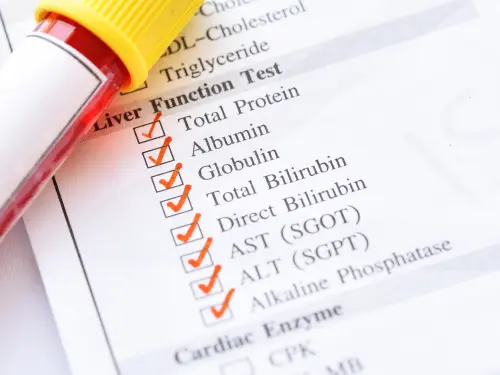When you hear the term “elevated liver enzymes,” it can sound concerning. But what does it really mean? Elevated liver enzymes indicate that the liver is stressed or damaged, but understanding what’s causing these changes is key to determining the right course of action. Let’s dive into what elevated liver enzymes are, what causes them, and what steps you should take if you receive this diagnosis.
What Are Liver Enzymes?
Liver enzymes are proteins produced by liver cells that facilitate chemical reactions necessary for the body to function properly. The most commonly measured liver enzymes include:
- Alanine transaminase (ALT): Helps convert proteins into energy for liver cells.
- Aspartate transaminase (AST): Helps metabolize amino acids, the building blocks of proteins.
- Alkaline phosphatase (ALP): Plays a role in breaking down proteins and is primarily found in the liver and bones.
- Gamma-glutamyl transferase (GGT): Involved in transporting molecules and detoxifying the liver.
When these enzymes are elevated in the bloodstream, it’s often a sign that the liver is under stress or damaged, causing the enzymes to leak from liver cells into the blood.
Common Causes of Elevated Liver Enzymes
There are many reasons why liver enzymes might be elevated, ranging from minor issues to more serious health conditions. Some common causes include:
- Fatty Liver Disease: Also known as hepatic steatosis, this condition is often caused by obesity or heavy alcohol use. Fatty liver disease can be categorized into alcoholic fatty liver disease (AFLD) or nonalcoholic fatty liver disease (NAFLD), depending on the cause.
- Medications: Certain medications, including acetaminophen (Tylenol), statins, and antibiotics, can cause elevated liver enzymes as a side effect.
- Viral Hepatitis: Hepatitis A, B, or C can cause inflammation in the liver, leading to elevated enzymes.
- Excessive Alcohol Consumption: Alcohol can damage liver cells and lead to a rise in liver enzyme levels. Continued alcohol use can lead to alcoholic hepatitis or cirrhosis.
- Autoimmune Liver Diseases: Conditions such as autoimmune hepatitis can cause the body’s immune system to mistakenly attack the liver, leading to inflammation and enzyme elevation.
- Liver Infections: Infections like mononucleosis or cytomegalovirus can cause temporary liver inflammation, resulting in elevated enzyme levels.
- Other Medical Conditions: Heart failure, thyroid disorders, and even celiac disease can sometimes cause liver enzymes to rise.
What Are the Symptoms of Elevated Liver Enzymes?
Many people with elevated liver enzymes don’t have any symptoms, and the issue is often discovered during routine blood work. When symptoms do occur, they may include:
- Fatigue or weakness
- Abdominal pain or swelling
- Jaundice (yellowing of the skin and eyes)
- Dark urine
- Loss of appetite
If you experience any of these symptoms, it’s important to consult your healthcare provider to determine the underlying cause.
How Are Elevated Liver Enzymes Diagnosed?
Elevated liver enzymes are typically diagnosed through a blood test called a liver function test (LFT), which measures the levels of various enzymes in the blood. If elevated levels are detected, additional tests or imaging may be recommended to identify the underlying cause. These may include:
- Ultrasound or CT Scan: Imaging tests to visualize the liver and detect abnormalities.
- Liver Biopsy: A small sample of liver tissue is removed and examined under a microscope to identify specific liver conditions.
- Viral Hepatitis Panel: Blood tests to check for hepatitis infections.
Treatment and Lifestyle Changes
Treatment for elevated liver enzymes depends on the underlying cause. If the condition is due to medication or alcohol, stopping the offending agent may be enough to return enzyme levels to normal. In cases of fatty liver disease, lifestyle changes such as weight loss, a healthy diet, and regular exercise are often recommended.
Other recommendations include:
- Dietary Changes: Incorporate more fruits, vegetables, lean proteins, and whole grains into your diet while reducing saturated fats and sugars.
- Exercise: Aim for at least 30 minutes of moderate exercise most days of the week.
- Limit Alcohol Intake: Avoid alcohol if you have liver enzyme issues, as it can exacerbate liver damage.
- Medication Adjustments: Consult with your healthcare provider about any medications that may be contributing to elevated enzyme levels.
When to See a Specialist
If elevated liver enzymes persist or if you have risk factors such as a history of liver disease, obesity, or heavy alcohol use, it may be time to see a gastroenterologist. They can provide more detailed evaluations and treatment options to help manage your liver health effectively.
Elevated liver enzymes can be a sign of various health conditions, from minor issues like medication side effects to more serious liver diseases. If you’ve been told your liver enzymes are elevated, it’s essential to follow up with your healthcare provider to understand the cause and take steps to protect your liver health.
Remember: Early detection and intervention can make a significant difference in managing liver health. Don’t hesitate to schedule an appointment with a specialist if you have concerns about your liver enzyme levels.

